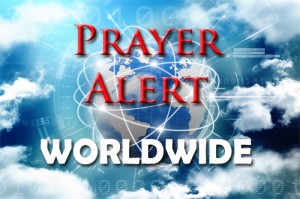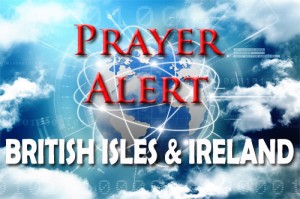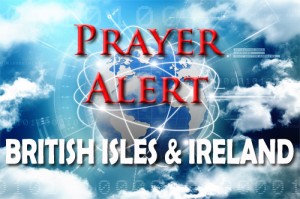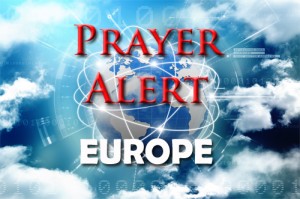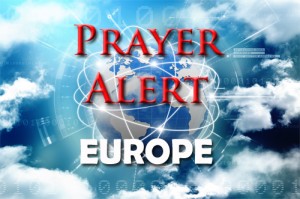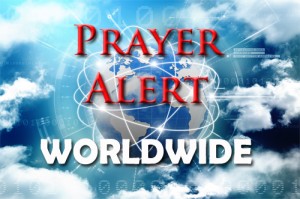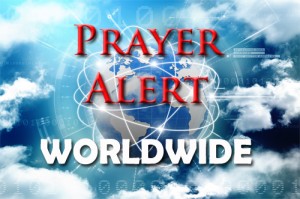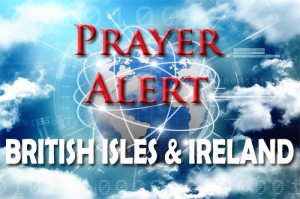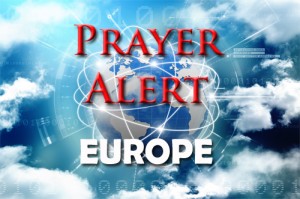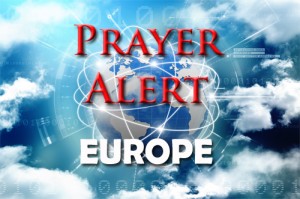Displaying items by tag: Politics
Azerbaijan: a ‘democracy’ that persecutes Christians
For years, Azerbaijan has been riding the line for years between democracy and fiefdom. Its New Azerbaijan Party is accused of authoritarianism and bribery. It imprisons corruption-busting journalists and human rights advocates. Friction with neighbouring Armenia was heightened last year, with bombings and continuous calls to war. Their dispute is over Nagorno-Karabakh, an Armenian enclave within Azeri territory. Oil export revenues have aided the Azeri population, elevating living standards and increasing military strength; but poverty and corruption plague the nation. Although Azerbaijan fell off the 2017 World Watch List of persecuted Christians, that is not because restrictions have eased. Christian detentions continue; they face harassment and intimidation, and many are given large fines for meeting as churches or giving out Bibles. Only 0.22% of the people are evangelical Christians. Azerbaijan was one of the first republics in the Soviet Union to face the problem of refugees. There are 618,137 refugees and internally displaced persons in the country.
Scotland bans fracking
A decision by the Scottish government to ban fracking has been welcomed by the Church of Scotland. Church leaders said the vast majority of congregations oppose this controversial practice. They have now called for more opportunities to exploit greener energy sources, like wind. Adrian Shaw, the Church of Scotland's climate change officer said the Church is against fracking ‘primarily because of a need to build a low carbon economy’, adding, ‘Continuing dependence on fossil fuels, coal, and gas delays a low-carbon economy.’ He also said that the Church believes in the potential for Scotland to be fully green. ‘Our resources for wind power, hydropower, and tidal power are enormous here.’
Intercessor Focus: Brexit issues
On 22 September Theresa May gave the EU the UK's strategy for Brexit, but by the end of the fourth round of Brexit talks a week later there was little sign of compromise on either side. Pray for agreement on broad-minded non-disruptive changeover arrangements which will benefit both the EU and the UK. The Prime Minister said a transition period could be around two years, during which time access to the single market would continue on current terms. Pray for negotiators to move forward positively and speedily to construct workable EU-UK relationships during and after Brexit. She also proposed a ‘bold new security agreement’ between the UK and the EU. Pray for a withdrawal that continues to honour the peace process in Ireland and avoids a hard border. On trade, the PM said there was no need to impose tariffs where there are none now. Pray for a transition that doesn’t adopt existing models, but rather provides better stability for businesses and workers.
Germany: influence of AfD
Alternative for Germany (AfD), founded in 2013, is a right-wing populist and Eurosceptic political party. In 2016 it made an alliance with the Freedom Party of Austria, with both party leaders saying border control officers should use armed force if necessary to protect the border. By May 2017, the AfD had gained representation in 13 of the 16 German state parliaments. Now it has become the third largest party in the German parliament, partly because immigration was the main election issue. Postwar Germany is multicultural, tolerant and liberal: abhorring war, and defending the environment, human rights and international teamwork. BUT the influx of over one million Muslim migrants, Russia’s dramatic resurgence, and Europe’s rolling financial problems are arousing other feelings and aspirations. These emotions don’t square with the desire to be tolerant and multicultural. Many are saying that a more powerful, more assertive, more terrifying Germany is coming.
Crimea: human rights crimes
The UN has accused Russia of committing grave human rights violations in Crimea. There is a need for accountability. Russia annexed the peninsula from Ukraine in 2014, after that country's leader was overthrown. The UN report has documented random arrests, detentions, disappearances, torture, and at least one execution. There have been ‘intrusive law enforcement raids of private properties’, and the human rights situation has ‘significantly deteriorated’, with hundreds of prisoners illegally transferred from Crimea to Russian jails. Civil servants have been forced to renounce their Ukrainian citizenship or face losing their jobs, and Moscow has replaced Ukrainian laws with Russian ones. Education in Ukrainian has all but disappeared from Crimean schools. There was no immediate response from Russia to the report's accusations.
Iraq: Kurds vote for independence
An email from a Kurdish Christian says, ‘On 25 September, in a landmark referendum, Kurds in three northern provinces of Iraq voted for independence for the Kurdistan region. Kurds are the fourth-largest ethnic group in the Middle East, but they have never obtained a permanent nation state. Kurds faced decades of repression before acquiring autonomy in 1991. 5.2 million Kurds and non-Kurds who were registered as resident in Kurdish-controlled northern Iraq voted, even though Iraq’s prime minister denounced the referendum as unconstitutional. Neighbouring Turkey and Iran also vehemently objected to it, fearing it will stoke separatist feeling among their own Kurdish minorities. Even the US government voiced serious concerns. Dear friends, we ask for your urgent and ongoing prayer, for wisdom for the Kurdish government leaders and peace in the region.’ For a media report on the situation, click the ‘More’ button.
Brazil decades behind on inequality
Oxfam research shows that Brazilians earning the minimum wage would have to work for nineteen years to make as much as a rich person in Brazil’s top 0.1% makes in one month. At the current pace it would take Brazil 75 years to reach the UK’s current level of income equality. Oxfam had already reported that just six Brazilians own as much money as the poorest half of the country. ‘This is an unjust, unacceptable, and unsustainable situation,’ said Oxfam Brazil’s executive director. ‘We cannot dance around this any more; tackling inequality head-on is everyone’s responsibility. This report is our way of kick-starting this conversation.’ Experts say Brazil’s current situation is due to a backsliding tax system; racial and gender discrimination that erodes the rights of women and black Brazilians; a political system that concentrates power; and politicians highly prone to corruption.
Johnson’s vision of post-Brexit Britain
In a newspaper article, Boris Johnson made a stand against the pessimism and accusations surrounding Brexit, saying that there are people ‘woefully underestimating Britain and thinking that Brexit isn’t going to happen’. He added, ‘There are some media observers - in this country and abroad - who think we are going to bottle it. I detect scepticism about whether we have the stamina, guts or persistence to do it. They think the Brexit bill will get lost in a House of Commons crevasse or buried in legal proceedings. They think that we will simply despair of finding the way out of the EU and sit down on the floor and cry, like some toddler lost in the maze at Hampton Court. Well, insofar as they doubt our resolve, I believe they are wrong; and I tell you that this country will succeed in our new national enterprise, and will succeed mightily.’ He went on to speak patriotically about Brexit, but his article has divided public opinion.
EU: Macron demands EU treaty changes
In what will be seen as a kick in the teeth to Jean-Claude Juncker, the European Commission president, Emmanuel Macron insisted that the EU should set goals for the next ten years and enforce treaty changes, or risk other member states following Brexit. The French president urged ‘new ambition’, or the Brussels bloc would face the ‘dismantling of Europe’. His comments followed Mr Juncker’s state of the union speech, which included his master plan for greater integration without treaty change. Speaking in New York, Mr Macron warned of difficult months and years ahead for the bloc if it could not shake off its image of overbearing bureaucracy; he said that other countries which are not comfortable with this will leave. Juncker had called for EU integration in the face of rising populism and elections in Italy, Sweden, Hungary, and the Czech Republic, where Eurosceptic parties are gaining momentum.
EU: Theresa May’s Brexit speech
On 21 September, the day before Theresa May delivers her first major Brexit speech in Florence, she met with her Cabinet to discuss her terms for Brexit. The last time she addressed the EU was in January, at Lancaster House, when she set out her original vision for Britain outside the EU. Now, with negotiations deadlocked over the ‘Brexit bill’ and the role of the EU courts, Europe is looking for a major policy intervention. Boris Johnson says the media is talking 'nonsense' about MPs having split allegiances while he and Philip Hammond, at opposite ends of the soft/hard Brexit debate, attempt to present a choreographed show of unity. However, some believe Friday's speech will not generate 'an immediate breakthrough' in Brexit talks.
